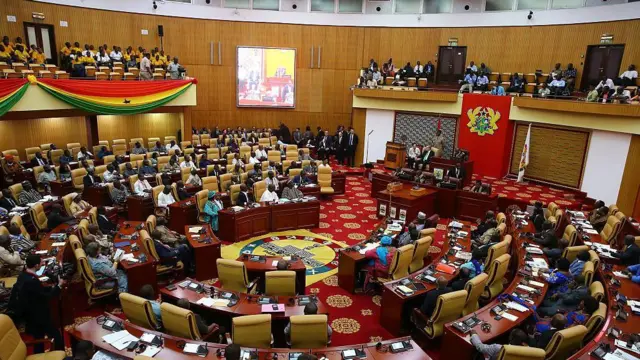Powerful nations are now taking their military rivalry into the skies, and the UK is determined not to be left out. Plans for a network of radars tracking deep-space activity to protect the UK from potential space warfare are set to proceed in Pembrokeshire, despite local opposition.
The Ministry of Defence (MoD) has confirmed the development of 27 radar dishes, each standing 20 meters high, on the St Davids peninsula.
These radars will be capable of tracking objects as small as a football, forming part of a global network.
The project, known as the Deep Space Advanced Radar Capability (Darc), will be situated at Cawdor Barracks in south-west Wales. This initiative is part of the Aukus defense partnership involving the UK, US, and Australia.
The network of ground-based radars across these nations aims to monitor, track, and identify objects up to 22,000 miles from Earth, providing crucial long-term defense against potential deep-space threats.
Defense Secretary John Healey emphasized the importance of the project, assuring local consultation and highlighting the job opportunities it would create. “Space plays a crucial role in our daily lives – used by everything from our mobile phones to banking services,” Healey stated.
“It is also used by UK defense to conduct vital tasks such as supporting military operations, navigating forces, and gathering intelligence. This new radar program will not only enhance our awareness of deep space but also help protect our space assets alongside our closest partners.”
John Healey
The increasing reliance on satellite technology has made space an emerging frontier for warfare.
Dr. Mark Hilborne, who leads the space security research group at King’s College London, remarked, “This is a big deal in the sense that we don’t have enough space domain awareness. There is a concern about increasing military activity and increasing belligerence in space. We need more eyes on the sky.”
While the term “deep space” might suggest far-reaching cosmic explorations, Darc’s focus is on geostationary orbit.
It aims to provide detailed intelligence on the nature and activities of satellites, whose numbers are expected to surge from approximately 9,000 today to 60,000 by 2030.
These satellites serve various purposes, including telecommunications, GPS, weather forecasting, and military surveillance.
Dr. Hilborne explained the challenges in space monitoring: “You can’t hide behind a mountain in space, we can see what’s there, but you don’t always know what’s onboard a satellite or what its operators’ intentions are and whether they are malevolent or worrying.”
Russia’s Alleged Hostilities In Space
Recent incidents have underscored these concerns, such as the US accusing Russia of launching a “counter-space weapon” that appeared to stalk a US government satellite and a “Russian doll” satellite that released a smaller satellite, which launched a projectile in a presumed demonstration of anti-satellite capabilities.
Instances of GPS and internet satellites being electronically jammed and the use of lasers to temporarily “dazzle” satellites’ optical sensors are becoming more frequent. “Those kinds of subthreshold activities are happening all the time,” Hilborne noted.
The radar system is expected to be operational by 2030, with redevelopment of the site commencing once safety requirements and environmental impact assessments are completed.

Cawdor Barracks, currently home to a British Army signals regiment, is set to relocate in 2028. The MoD stated that the radar station’s development would secure at least 100 jobs.
Despite these assurances, local campaigners have launched a movement called Parc Against Darc to oppose the plans.
They argue the radar installation is “one of the most health-hazardous, tourism-ruining, skyline-blighting military installations ever proposed anywhere in the UK.”
This campaign draws on the legacy of the Pembrokeshire Against Radar Campaign from 1990, which successfully halted a similar radar installation on the Dewisland peninsula after significant public opposition led then-Prime Minister Margaret Thatcher to cancel the proposal.
A spokesperson for the current campaign vowed to “build on the strong history of the previously victorious campaign and echo all of its strengths and successes.”
The debate over Darc’s future highlights the tension between national security priorities and local community concerns, setting the stage for a contentious path forward.
READ ALSO: Portia Asare Confirms Divorce From Husband, Promises To Marry Again





















